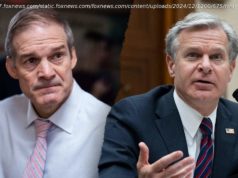President Donald Trump thinks the stock market would « crash » if he were impeached and « everybody would be very poor. » Wall Street analysts beg to differ.
(CBS) — President Donald Trump thinks the stock market would “crash” if he were impeached and “everybody would be very poor.” Wall Street analysts beg to differ.
Exhibit A: For now, financial markets have largely shrugged off Mr. Trump’s political woes. Leading stock indexes are little changed since Tuesday, when his longtime personal attorney, Michael Cohen, seemed to implicate the president in campaign finance violations and former Trump campaign chairman Paul Manafort was convicted on eight counts of bank fraud.
Although investors famously hate the kind of uncertainty that can come with a major presidential crisis, analysts say Wall Street remains focused on more tangible concerns, such as how Mr. Trump’s protectionist trade agenda could affect U. S. economic growth. Art Hogan, chief market strategist at B. Riley FBR, also notes that investors are already reaping the benefits of Mr. Trump’s economic policies, such as his steep corporate tax cuts.
“The market isn’t sentimental,” Hogan said. “It looks at the administration, and we’ve gotten the pro-business policies that the market wanted. That’s locked and loaded.”
The president’s exit from the political stage could even benefit stocks given the widespread opposition in the financial and corporate world to Mr. Trump’s trade policies, which have led to tensions with China, Europe and other major economies around the world. Mr. Trump’s Twitter habits also wouldn’t be missed, Hogan said.
“It loses [Mr. Trump’s] disruptive tweets and bad economic policy toward trade, and the market looks at that as a positive,” he said. Vice President Mike Pence, who would step into the president’s role if Mr. Trump were impeached, “doesn’t seem to be a protectionist and a hawk, so you might have a market that reacts positively to it at some juncture.”
Investors are particularly concerned with the prospects of a prolonged trade war with China. Credit rating agency Moody’s predicted in a report on Wednesday that America’s trade relations with the world’s second-largest economy would worsen and dent U. S. growth.
Meanwhile, a post-impeachment slide in stocks — while that could affect investor and business sentiment — likely wouldn’t inflict a serious financial toll on most Americans given that most shares are held by a small fraction of wealthy Americans.
In other words, many middle-class and lower-income households would feel little impact from a market downdraft simply because they don’t own stocks.
History offers some precedent for assessing how the stock market might react following the impeachment and ouster of a sitting president. During the Watergate scandal, when President Richard Nixon resigned rather than face impeachment, stocks fell sharply. The S&P 500 slumped more than 20 percent between the time of the Watergate break-in and Nixon’s resignation.
But stocks were falling well before the drama over Watergate, Capital Economics notes, with investors focused more on a steep slowdown in economic growth at the time, the impact of OPEC’s oil embargo and runaway inflation. More important, stocks came roaring back after Nixon’s exit.
After President Clinton was impeached in 1998 on charges of perjury and obstruction of justice, stocks actually rose sharply. While the nation may have been riveted by the political and personal spectacle, investors mostly looked past it and instead focused on the era’s booming corporate profits, strong wage growth, low unemployment and surging tech sector.
One lesson from these episodes, experts say: Wall Street tends to concentrate on risks it can quantify. Those tend to be issues like tax and trade policies, unemployment, wages and corporate profitability.
“Of course, it would be unfair to dismiss the influence of politics altogether,” Capital Economics said in a report. “The S&P 500 did rally strongly in the wake of President Trump’s election victory, and has occasionally reacted to his statements on trade and the Fed.”
Still, it added, “Overall, though, we think that influence of politics will remain small.”






